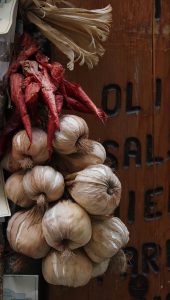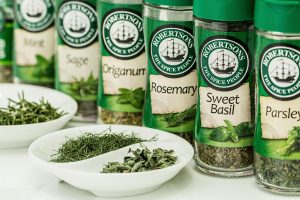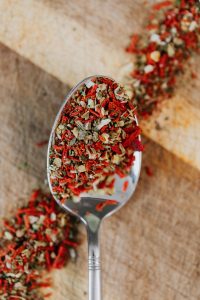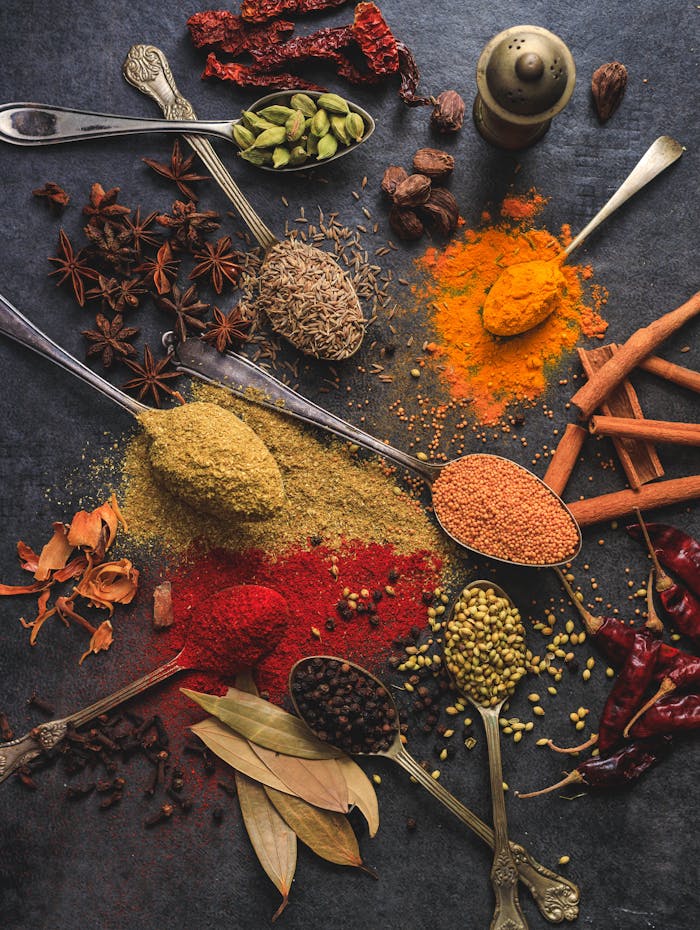Introduction: The Flavorful World of Balkan and Albanian Spices
How Balkan Spices Define Traditional Albanian Cuisine
The Balkans, a region steeped in history and cultural diversity, boasts a culinary tradition rich in flavors and aromas. Albanian cuisine, in particular, reflects this heritage through its use of various spices that not only enhance taste but also tell stories of the land and its people. Whether you’re enjoying a meal in Sarandë or dining at a traditional spot like Sophra Restaurant, these flavors are central to the experience. This article delves into the essential spices that define Albanian cooking and their traditional applications, perfect for those searching for authentic Balkan food in Sarandë or exploring the heart of Albanian flavor.



1. Paprika: The Heart of Albanian Flavor
Paprika, derived from dried red peppers, is a cornerstone in Albanian kitchens. Its sweet and smoky profile adds depth to stews, meats, and sauces. Dishes like “Fërgesë,” a hearty blend of peppers, tomatoes, and cheese, rely on paprika for their signature taste.
2. Oregano: The Mediterranean Touch
Oregano’s robust and slightly bitter flavor complements many Albanian dishes. Often sprinkled over grilled meats or mixed into marinades, it brings a Mediterranean essence that’s both familiar and distinctive.
3. Red Pepper Flakes: Adding a Spicy Kick
For those who appreciate heat, red pepper flakes are indispensable. They infuse dishes with a fiery zest, commonly found in recipes like “Speca të Mbushura” (stuffed peppers) and various meat preparations.
4. Mint: Freshness in Every Bite
Mint offers a refreshing contrast to richer flavors. It’s frequently used in salads, yogurt-based sauces, and even some meat dishes, providing a cooling balance that’s especially welcome in summer meals.
5. Garlic: The Universal Enhancer
Garlic’s pungent aroma and flavor are integral to Albanian cooking. Whether sautéed as a base for stews or minced into spreads, it elevates the overall taste profile of numerous traditional dishes. It’s used so heavily, you might think it’s warding off more than just bland flavors — perhaps even bad luck and the occasional vampire! 🧄
6. Rosemary: Aromatic Depth
Rosemary imparts a woody, pine-like fragrance that pairs well with roasted meats and potatoes. Its presence is subtle yet impactful, often used in slow-cooked dishes to infuse layers of flavor. In the context of Balkan spices in traditional Albanian cuisine, rosemary is especially valued for its ability to enhance oven-baked specialties and is frequently found in Sarandë’s rustic and authentic dining spots, where traditional cooking methods still thrive. At Sophra Restaurant in Sarandë, rosemary potatoes are a beloved side dish, often served alongside mixed grilled meats including pleskavica, homemade meatballs, and spicy suxhuk from the Kosova region. This classic pairing not only showcases the spice’s versatility but also reflects the deep-rooted culinary traditions of southern Albania. that pairs well with roasted meats and potatoes. Its presence is subtle yet impactful, often used in slow-cooked dishes to infuse layers of flavor. In the context of Balkan spices in traditional Albanian cuisine, rosemary is especially valued for its ability to enhance oven-baked specialties and is frequently found in Sarandë’s rustic and authentic dining spots, where traditional cooking methods still thrive.
7. Parsley: The Finishing Touch
Chopped fresh parsley is more than just a garnish in Albanian cuisine. It adds a burst of color and a mild, slightly peppery taste, commonly sprinkled over soups, stews, and grilled dishes just before serving.
8. Black Pepper: Subtle Heat
Black pepper provides a gentle spiciness that enhances the natural flavors of ingredients and is one of the most versatile spices in Albanian kitchens. Much like salt, it’s considered a universal seasoning and is found in nearly every traditional dish from meats and stews to vegetable plates and sauces. Whether you’re dining at a local spot in Sarandë or enjoying home-cooked meals using Balkan spices in traditional Albanian cuisine, black pepper delivers familiar warmth and aroma that ties flavors together. It’s a simple spice with a powerful presence in the region’s culinary heritage.
9. Bay Leaves: Infusing Complexity
Bay leaves are often added to soups, stews, and sauces during cooking to impart a subtle depth and complexity. They are typically removed before serving, having released their aromatic qualities into the dish.
10. Dill: A Unique Flavor Profile
Dill’s distinct taste is cherished in Albanian cuisine, especially in dishes involving dairy or eggs. It’s commonly found in recipes like “Tarator,” a cold yogurt and cucumber soup, where it adds a fresh, slightly tangy note. Dill is also used in many baked and oven-roasted specialties served at traditional restaurants like Sophra in Sarandë, known for their wood-fired ovens. Whether it’s blended into cheese-based dishes, added to egg pies, or paired with lamb and vegetables, dill brings an unmistakable aroma to many of Albania’s most beloved recipes.
.
Conclusion: Embracing the Spice of Life
The spices highlighted above are more than mere ingredients; they are the essence of Albanian culinary identity. Each spice contributes to the rich tapestry of flavors that make Albanian dishes both comforting and exciting. Whether you’re searching for traditional Albanian dishes in Sarandë, learning about Balkan spice traditions, or exploring Mediterranean herbs and their uses in local cuisine, this guide provides an authentic introduction. While this article covers the most common and essential spices, it is by no means exhaustive — Albanian kitchens often include many regional herbs and personal family blends passed down through generations. By understanding and utilizing these staples, one can truly appreciate the depth and diversity of Balkan cuisine.. Each spice contributes to the rich tapestry of flavors that make Albanian dishes both comforting and exciting. By understanding and utilizing these spices, one can truly appreciate the depth and diversity of Balkan cuisine.
FAQs
Q1: What is the most commonly used spice in Albanian cuisine?
Paprika is widely used, offering a sweet and smoky flavor that enhances many traditional dishes.
Q2: Are these spices readily available outside the Balkans?
Yes, most of these spices are globally available in supermarkets or specialty stores.
Q3: Can I substitute fresh herbs for dried ones in Albanian recipes?
While fresh herbs offer a different flavor profile, they can often be used in place of dried ones, keeping in mind the potency difference.
Q4: Is Albanian cuisine very spicy?
Albanian food tends to be flavorful rather than overly spicy, with heat levels adjusted to taste.
Q5: How important are spices in Albanian cooking?
Spices are crucial, as they define the character and authenticity of traditional dishes.
Q6: Are there any unique spice blends specific to Albania?
While not as common as in some other cuisines, certain regional blends do exist, often passed down through generations.
Q7: Where can I find authentic traditional food in Sarandë?
Look for local favorites like Sophra Restaurant, known for its wood oven and traditional Albanian recipes using fresh local ingredients.
Q8: Which herbs are commonly used in Sarandë restaurants?
Dill, oregano, mint, and parsley are among the most used herbs in Sarandë’s traditional kitchens.
Q9: What makes a restaurant in Sarandë truly authentic?
Authentic restaurants focus on traditional recipes, use locally sourced herbs and ingredients, and maintain heritage cooking methods like wood-fired ovens.
Q10: Are these spices used in modern Albanian restaurants too?
Absolutely! From seaside cafes to rustic taverns, many modern eateries incorporate these time-honored herbs into both classic and contemporary dishes.
For more insights into Balkan spices, you can explore this detailed guide on Balkan culinary heritage.

